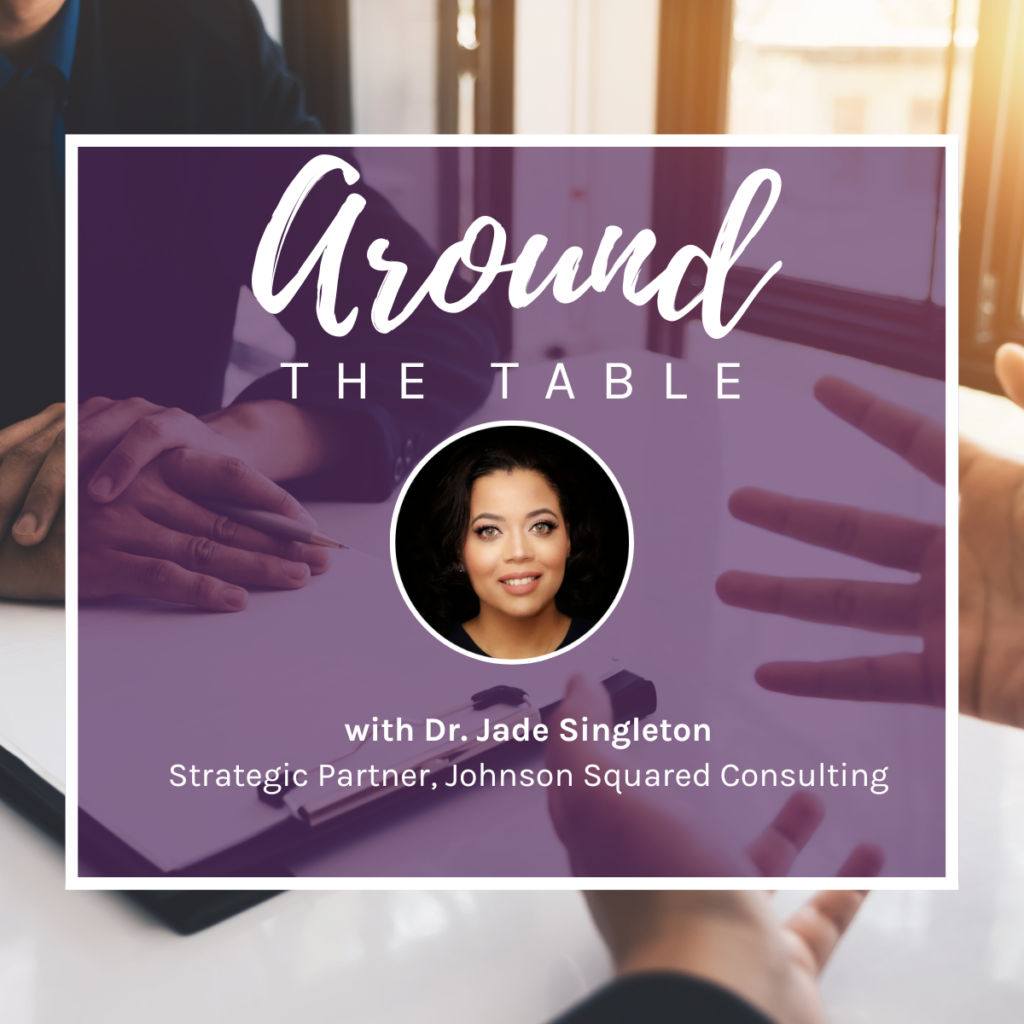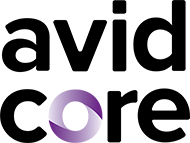Welcome to Around the Table, a regular series where we talk to people in our network and share the incredible work they are doing in their industry. Pull up a chair and join us for conversation and connection.

Name: Dr. Jade Singleton
Company: Johnson Squared Consulting
Where to Find You: LinkedIn
What drew you to the world of Diversity, Equity, and Inclusion (DEI) consultation and education?
I would say that the space really picked me. I started doing the work following George Floyd’s murder. My brother also faced a severe injustice by law enforcement that made front page news. It just became part of my lexicon and part of the work I did from a strategic transformation standpoint. I’ve already been working on strategic transformation, so now I really focus on change, change management, and change management strategy. This really fell neatly into the work I was doing.
Establishing Diversity, Equity, and Inclusion (DEI) is establishing strategic transformation within institutions. That adoption set me apart and I have been called on to use my expertise.
What current project are you working on?
Johnson Squared Consulting launched our own DEI certification program! We offered it as “pay what you can” because we saw the space for training and certifications getting narrower and narrower. Institutions that have taken over DEI certifications, focus on theory and, frankly, have their own internal DEI issues, so we saw a real need for tactics. This space allowed us to launch Sarah Jane Academy, which was named after my aunt. She was the first Black professor in the United States, and a very early feminist and abolitionist.
Sarah Jane Academy is opening the aperture to make sure people can get top-tier DEI-practitioner-level training while not breaking the bank. Some of these courses cost up to $8,000, so we offered our first cohort as “pay what you can.” This is narrowing the playing field to help eliminate barriers to DEI education and certification.
Can you further explain how Sarah Jane Academy works?
The Sarah Jane Academy is based on tactics. The course is about how the field itself has emerged and what top challenges you might experience as a practitioner currently—and then moving into the role. Our approach is to diagnose, protect, strategize, advise, and measure. And we are really going through those steps and scenarios to help practitioners and advocates come up with their own DEI action plans and what they need to execute for their organizations. We want this to be as realistic as possible as to what they might encounter.
What do you think is the biggest challenge the industry is facing today?
The biggest challenge we are facing is developing cohesive DEI best practices. There’s a lot of research that’s just starting to emerge regarding training, launching a DEI action or effort, and measuring progress. Coalescing all the best practices out there, emphasizing them, and having someone to curate what’s going to offer their organization the best efficacies is challenging. I think all those elements are missing and that’s what people are really struggling to find at this stage.
What’s the best advice you’ve received in your career?
From my husband: “You can delegate tasks, but as a leader you can’t delegate responsibility.”
What advice would you give to someone wanting to join this field?
Deal with your own career trauma early on because this space can really bring up areas you haven’t addressed. Really take a close look at yourself to make sure you’re not projecting that trauma onto coworkers, partners, and clients.
For young professionals, especially Black women and women of color, what general career advice do you have?
Avoid the survivor bias mentality. The reasons we don’t have a lot of diverse representation at the top are not only just because of generalized biases, but because there’s a tendency to want to hold the gate close or even close it. You keep the gate closed because you’ve had to do so much, or you’ve had to work so hard and you feel as if someone who looks like you may outshine you—something in that regard. It’s very easy to internalize racism when you are excelling in your career and in some scenarios you kind of become the “pet.” There’s this phenomenon called “pet to threat.” It gets harder as you move up the ladder. Avoid being a token gatekeeper and avoid it taking root in you as an individual.
The way to avoid falling into survivor bias is to take notes around what you contributed. When you feel the need to kind of block someone else’s passage, look to see what your tendency is. Nine times out of 10, the tendency is against someone who looks like you. It might be a woman, someone who fits within your culture or your demographic. That’s survivor bias. Ask yourself what feelings come up that could cause you to block someone else’s career path.
If we were physically around the table right now, what food would you have brought to share?
Ceviche or lumpia.
